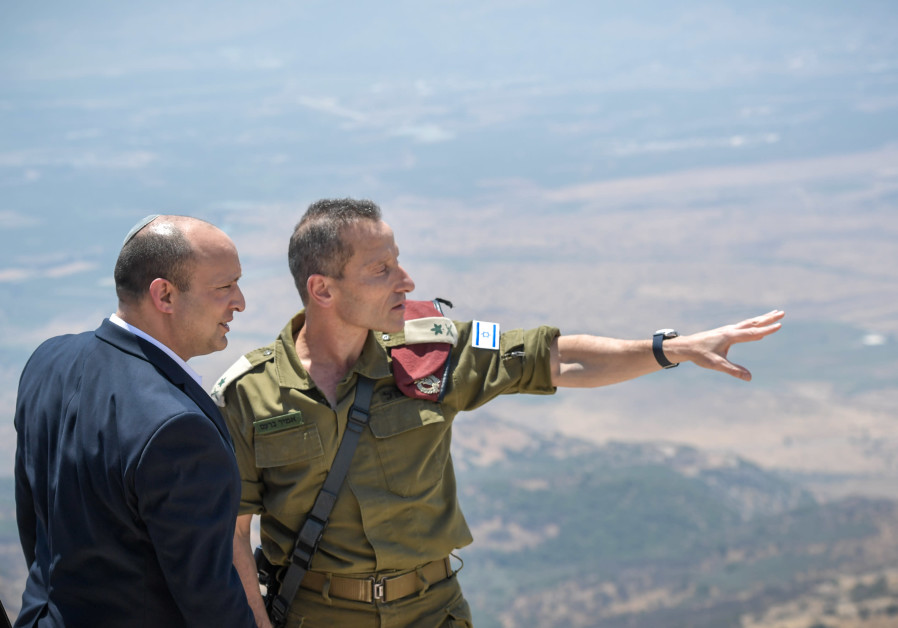Bennett: Iran’s days of setting Middle East on fire are over
if(window.location.pathname.indexOf(“656089”) != -1){document.getElementsByClassName(“divConnatix”)[0].style.display =”none”;}else if(window.location.pathname.indexOf(“/israel-news/”) != -1){ document.getElementsByClassName(“divConnatix”)[0].style.display =”none”; var script = document.createElement(‘script’); script.src = ‘https://player.anyclip.com/anyclip-widget/lre-widget/prod/v1/src/lre.js’; script.setAttribute(‘pubname’,’jpostcom’); script.setAttribute(‘widgetname’,’0011r00001lcD1i_12258′); document.getElementsByClassName(‘divAnyClip’)[0].appendChild(script);}
 PM NAFTALI BENNET at situation assessment meeting with IDF Chief of Staff Lt.-Gen. Aviv Kohavi and senior IDF officials on Israel’s northern border, August 3, 2021
PM NAFTALI BENNET at situation assessment meeting with IDF Chief of Staff Lt.-Gen. Aviv Kohavi and senior IDF officials on Israel’s northern border, August 3, 2021 PM Naftali Bennet and Northern Command commander Maj. -Gen. Amir Baram, on Israel’s northern border, August 3, 2021
PM Naftali Bennet and Northern Command commander Maj. -Gen. Amir Baram, on Israel’s northern border, August 3, 2021





Comments are closed.